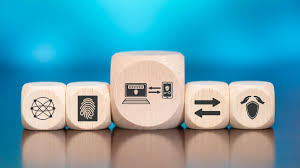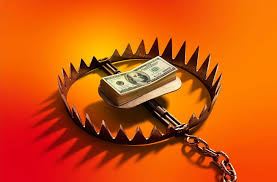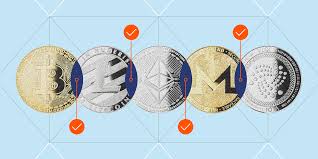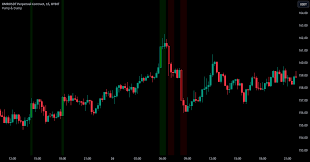Buying crypto is exhilarating—there’s a sense of possibility in every transaction. But whether you’re a total newcomer or a curious dabbler, the crypto world throws up more than its fair share of pitfalls. I’ve seen even seasoned investors trip over the same mistakes, often because they’re swept up in the hype or paralyzed by FOMO (that’s “fear of missing out,” for the uninitiated). If you want to buy cryptocurrency easily and securely, it pays to know what traps to sidestep from day one.

Chasing Hype Instead of Doing Research
Let’s be honest: it’s tempting to jump on a coin that’s trending on Crypto Twitter or exploding on TikTok. But buying crypto based purely on buzz is a recipe for regret. The truth is, many coins that skyrocket overnight come crashing down just as fast. Instead of following the crowd, take time to understand:
- The project’s purpose: What problem does this cryptocurrency solve?
- The team: Who’s behind it? Are they transparent and reputable?
- Tokenomics: How is the coin distributed? Is there a capped supply?
If you’re not sure how to research new coins, check out this list of newly added cryptocurrencies and see which ones have real substance behind them.
Skipping Security Basics
This one stings because it’s so preventable. Crypto is all about self-sovereignty—you’re your own bank! But that means you need to step up your security game. I’ve heard too many stories of people losing their Bitcoin or Ethereum because they left funds on an exchange that got hacked or fell for a phishing scam.
Top Crypto Security Mistakes to Avoid
-

Using Weak Passwords: Simple or reused passwords make your crypto wallet vulnerable to hackers. Always create strong, unique passwords for every account.
-

Ignoring Two-Factor Authentication: Skipping 2FA is like leaving your door unlocked. Enable it to add an extra layer of protection to your assets.
-

Falling for Phishing Scams: Clicking suspicious links or sharing info on fake sites can lead to loss of funds. Always verify URLs and sender authenticity.
-

Storing Crypto on Exchanges: Keeping your coins on exchanges exposes you to hacks and outages. Use secure wallets for long-term storage.
-

Neglecting Wallet Backups: Not backing up your wallet could mean permanent loss if your device fails. Keep secure backups in multiple locations.
If you only take away one thing from this section, let it be this: always use two-factor authentication and consider moving your assets into a hardware wallet if you plan to hold long-term. For more tips, read this guide on securing your crypto wallet.
Poor Timing: FOMO Buying & Panic Selling
The emotional rollercoaster of crypto markets can make even rational folks act impulsively. When prices are soaring, people rush in at all-time highs; when markets dip, panic selling takes over. This cycle can drain your portfolio and your peace of mind.
The antidote? Have a plan before you buy—set clear entry and exit points based on your goals, not your emotions. Consider using dollar-cost averaging (DCA), which means investing a fixed amount at regular intervals regardless of price fluctuations. It may not sound flashy, but DCA helps smooth out volatility over time.
You can also track historical market cycles using resources like CoinMarketCap charts. Understanding patterns helps put short-term swings in perspective—so you don’t end up making decisions you’ll regret later.
Overlooking Fees and Hidden Costs
This mistake sneaks up on everyone eventually! Crypto exchanges each have their own fee structures—some charge per transaction; others sneak in spreads between buy/sell prices. And don’t forget network fees (like Ethereum gas), which can spike during busy times.
If you want every satoshi working for you, compare platforms before making big moves—and always double-check transaction costs before hitting “Buy.” For more cost-saving strategies, see our article on how to buy crypto cheaply.
Neglecting Tax Implications
Crypto gains might feel like “magic internet money,” but the tax authorities in most countries definitely don’t see it that way. Every time you sell, swap, or even spend your crypto, you could trigger a taxable event. Many buyers get blindsided by their first tax season—especially if they’ve made lots of small trades or used multiple exchanges.
Don’t wait until April to scramble through old transaction histories. Start tracking your trades from day one using a reliable portfolio tracker or crypto tax software. For those in the US, the IRS virtual currency guidance is a must-read. If you’re elsewhere, check your country’s official rules—crypto taxes are evolving fast worldwide.
Ignoring Community and Project Updates
Buying a coin is just the start—staying informed is what keeps your investment smart. Crypto projects are living things: they fork, upgrade, sometimes even disappear overnight. If you’re not following updates from official channels or community forums, you risk missing out on important news (like an upgrade requiring you to move your coins) or falling for outdated scams.
Sign up for project newsletters, join their Discords or Telegrams (with caution), and keep an eye on reputable news sources like CoinDesk and The Block. Being plugged in means you’ll spot red flags early—and catch opportunities before they trend.
Falling for “Too Good To Be True” Offers
Scammers thrive wherever there’s hype and hope of quick riches—and crypto is no exception. From fake giveaways on social media to elaborate phishing sites that mimic real exchanges, the traps are endless. If someone promises guaranteed returns or asks for your private keys, run the other way.
Top Crypto Scams to Dodge With Confidence
-

Phishing Scams: Watch out for fake emails or websites mimicking real crypto platforms. Always double-check URLs and never share your private keys!
-

Pump and Dump Schemes: Beware of sudden hype around unknown coins. Scammers artificially inflate prices, then sell off, leaving you with losses.
-

Fake Giveaways: If someone promises to double your coins for free, it’s too good to be true! Legitimate projects never ask you to send crypto first.
-

Impersonation Scams: Scammers pose as famous personalities or support staff. Always verify identities through official channels before engaging.
-

Malicious Wallet Apps: Download wallets only from trusted sources. Fake apps can steal your funds instantly.
For extra protection, bookmark official sites (don’t trust random links), double-check URLs before logging in, and never share sensitive info with anyone—even if they claim to be “support staff.” For more safety tips, read our guide on how to spot crypto scams.
Forgetting the Power of Community Wisdom
The best investors aren’t lone wolves—they tap into collective knowledge. Engaging with communities can help you spot trends early, avoid rookie errors, and build conviction in your choices (or rethink them!). Whether it’s r/CryptoCurrency on Reddit or local meetups via Meetup, surrounding yourself with other learners pays off.
Which crypto mistake have you made most often?
We all learn as we go! Share which common crypto pitfall you’ve stumbled into the most.
If you’re ever unsure about a new coin or platform, ask around! The crypto space moves fast but rewards those who learn together.
Ready to Buy? Your Pre-Purchase Checklist
You’ve dodged the major pitfalls—now let’s make sure every buy is intentional and secure. Here’s a quick checklist before taking that next step:
The world of digital assets thrives on curiosity—but it also rewards caution and continuous learning. By steering clear of these common mistakes when buying crypto, you’re already ahead of most newcomers (and some old-timers too). Stay open-minded but skeptical; stay optimistic but prepared.
If you’re hungry for more tips—or want to share your own lessons learned—explore our guides on the best beginner-friendly exchanges, how to buy Bitcoin safely, and strategies for building a resilient portfolio.
The next chapter in your crypto journey starts now—make it count!






